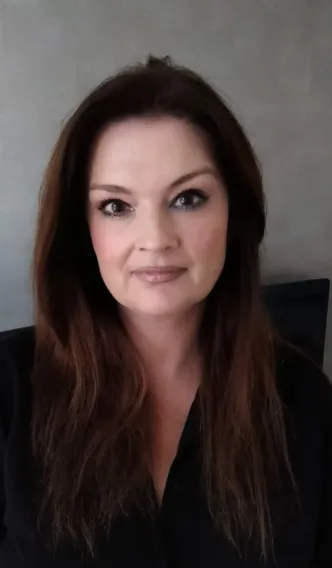
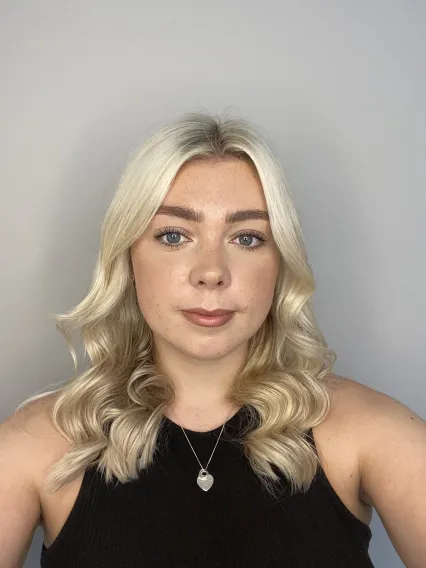
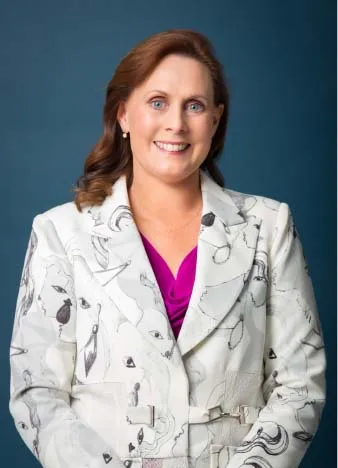
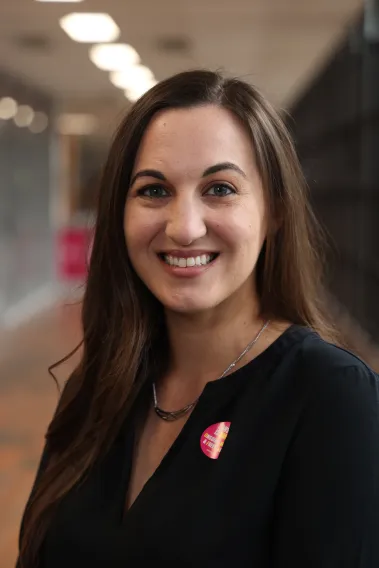
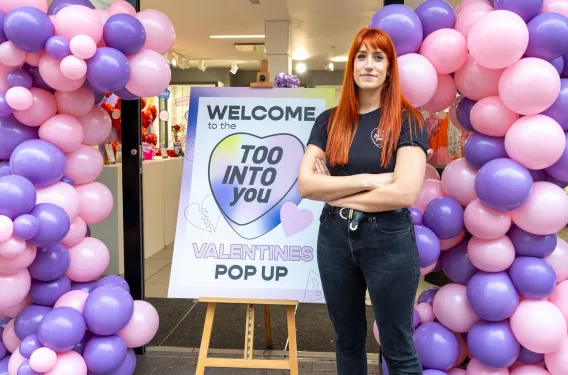
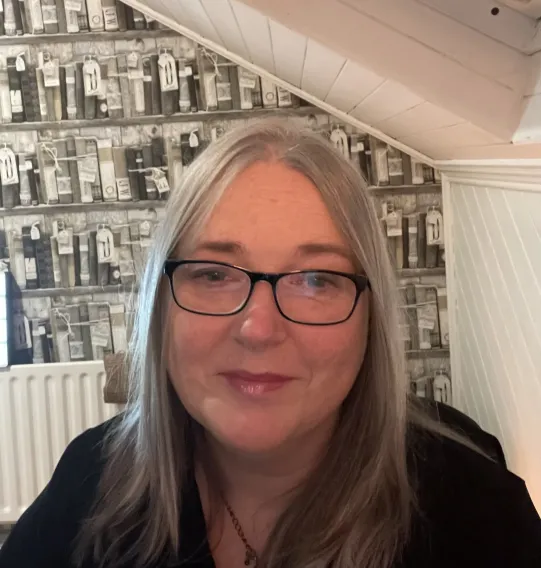
Fiona Drouet - Executive Director of EmilyTest
Fiona Drouet MBE is the founder and CEO of the Scottish charity, EmilyTest. At 18 years of age, her daughter Emily took her own life after being subjected to a relentless campaign of physical, psychological and sexual abuse by a fellow student while living and studying at University. Emily’s tragic death was the result of a series of preventable failures.
Since, EmilyTest has been successfully campaigning to raise awareness of Gender Based Violence (GBV) and stimulate change in policy, professional practice, intervention and support in Scottish education. Working closely with the Scottish Government, Universities, Colleges, Police Scotland, UCU and the third sector, Fiona continues to guide the sector towards safer campuses for all students to live, work and study.
Funded by the Scottish Government, EmilyTest has developed the world's first evidence-based GBV Charter for Colleges and Universities. The first Charter of its kind, it is intended to serve as a key driver in encouraging institutions to continually strive for excellence in the field of GBV prevention and intervention. Ensuring equal opportunity for every student, regardless of the university they study in.
Kara Stewart - Training & Project Development Manager for EmilyTest
Kara graduated from the University of St Andrews in 2022 with a Master of Arts (Honours) in Social Anthropology. She has worked within gender-based violence prevention since secondary school, being an ambassador for a local Rape Crisis centre.
Whilst at university she was a workshop facilitator for GotConsent, coordinating this initiative from 2021-22, and worked with local authority and government partners. She undertook an internship with the Scottish Government's Young Person's Guarantee division in 2021, working with the Developing the Young Workforce team on equality, diversity and inclusion. After graduating, Kara worked as EmilyTest Intern for the University of St Andrews' GBV Charter submission.
As the Training & Project Development Manager at EmilyTest, Kara leads the coordination, development, and delivery of the charity's training programmes, while overseeing charity projects, including the GBV Charter and Panel Assessment process. She also collaborates closely with sector partners to advance both internal and external training resources.
Caroline Reidy - Managing Director of the HR Suite, HR and Employment Law Expert
Caroline is a former member of the Low Pay Commission and an adjudicator in the Workplace Relations Commission. Caroline is an independent expert observer appointed by the European Parliament to the Board of Eurofound and is on the Board of the Design and Craft Council Ireland and has been appointed to the Governing Body of Munster Technology University.
With offices in Dublin, Kerry, Cork and a nationwide client base of SME's and multinationals. The HR Suite has over 500 clients throughout Ireland and employs a team of HR Advisors who offer clients expert HR advice, training, third party representation and other HR services.
Caroline speaks widely and writes articles and papers on thought leadership in relation to the future landscape of HR and the challenges and opportunities that presents for employers and employees. She also speaks on the area of employment law, mediation and other relevant HR related topics.
Clarissa Di Santis – Education and Training Co-Lead, Active*Consent, University of Galway
Clarissa J. DiSantis is the Education and Training Lead for Active* Consent based at the University of Galway. She is a practitioner, trainer, and leading authority on addressing gender-based violence in Higher Education and was the first person to hold dedicated role in this area in the United Kingdom at Durham University from 2016 to 2024. She is the co-author of Addressing Student Sexual Violence in Higher Education: A Good Practice Guide (Emerald: 1st edition, 2020; 2nd edition, 2025) and co-editor of Stopping Gender-based violence in Higher Education: Policy, Practice, and Partnerships (Routledge: 2023). Prior to working in higher education, she worked as a forensic mental health social worker in England and as a Licensed Master Social Worker and Licensed Chemical Dependency Counselor in the USA.
Mary Hayes – Too Into You Coordinator, Women’s Aid
Mary Hayes coordinates the Too Into You project from Women’s Aid which is focused on young people, in particular young women, aged 18-25. The project aims to teach young people about the difference between healthy and unhealthy relationships, the red flags of relationship abuse, and provide support at our dedicated website for young people toointoyou.ie.
Professor Patricia Mannix McNamara – Professor of Education, UL
Patricia Mannix McNamara is full Professor of Education Leadership at the University of Limerick. She has served as Deputy Head of School and Head of School. Previously a post primary teacher, Patricia embarked upon an academic career in the late 90’s. Upon joining UL, she led the Graduate Diploma/Masters in Health Education and Promotion for over 10 years, a programme that championed health and wellbeing nationally, and was a foreground to the current emphasis we now see placed upon wellbeing in both schools and workplaces. She went on to lead the development of a Diploma in Drug and Alcohol Studies, a successful community development programme in addiction studies, the national programme Postgraduate Diploma in School Leadership (a highly successful partnership programme, funded by OIDE), from which she developed two master’s programmes in leadership, one of which is an international programme. Currently, Patricia is leading the first cohort of Educational Leadership PhDs, in UL. To date she has graduated 18 PhD students successfully as primary supervisor. Patricia has also supported the development of three successful leadership micro-credentials work that she believes creates a third space for collaboration between the university and the profession, where humanistic pedagogies can be shared in very meaningful ways between academics and school leaders. It also allows for the university to do its bit in seeking to support initiatives to combat leader attrition and burnout.